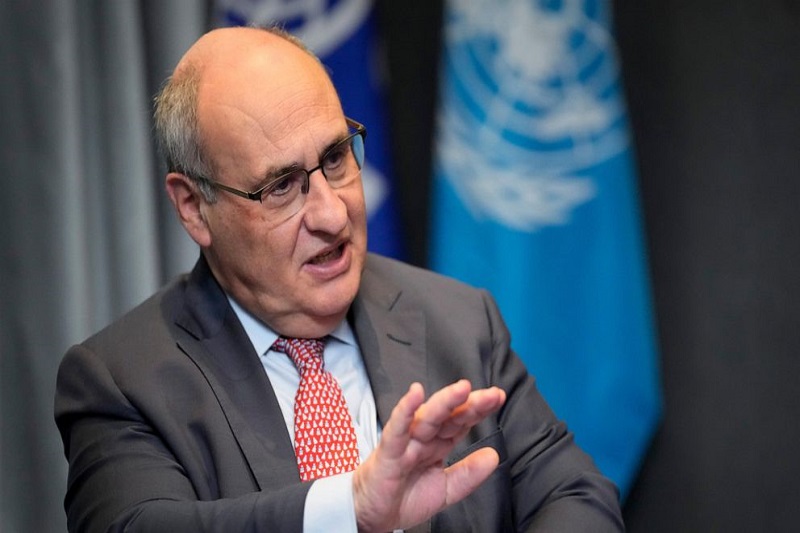According to the president of the International Organization for Migration (IOM), which is an agency of the United Nations, there has been a considerable increase in the number of women and children traveling from the Horn of Africa to Gulf countries through Yemen. This is a matter of alarm (UN).
According to IOM Director General Antonio Vitorino, speaking to the Associated Press, the number of people making the perilous journey from Ethiopia, Somalia, and Djibouti through Yemen, which is known as the Eastern Migration Route, has increased by 64 percent over the past year. These people are looking for better livelihoods, and a larger number of women and children are traveling alone on this perilous journey. According to him, the changing climate is a major factor in the rise in the number of people moving.
In the past, it was common practice for women and children to forgo the perilous journey over the desert, which was completed primarily on foot. In the past, men would often leave their families to go on a journey in search of work so they could send money home to their families.
Vitorino, who was in Kenya for the launch of an $84 million appeal to support more than one million migrants traveling the route through Yemen, stated, “The pressure is rising” as the number of migrants continues to rise. According to him, the desperate migrants are at risk of being victimized by criminal groups that operate along the road. They require protection against rape, assault, traffickers, and smugglers.
Related Posts
According to him, the United Nations’ Migration Organization needs to do more to raise awareness of the hazards that migrants face, particularly the conflict in Yemen, because some of the migrants are unaware of the threats that they face. According to him, the organization should provide fundamental medical treatment and other amenities to migrants who still opt to make the trek, and in some instances, it should return migrants to the countries from which they originated.
According to what Vitorino said, “Last year, we assisted in the voluntary repatriation of 2,700 migrants to Ethiopia, and once they arrived, we provided post-arrival assistance to enable them to move back to the districts from which they originally came.” Also on the rise is the movement of individuals from West Africa through Libya to Europe, and according to him, the fate of those migrants, particularly those who are detained in conflict-torn Libya, is a global issue.
“We are aware of the locations of the official detention centers, and we are permitted access to them—not permanently and never on our own—but we are always under the watchful eye of security personnel. However, we do have the ability to be of service,” Vitorino explained. However, the UN organization does not have access to the unofficial detention centers, which he described as a particularly worrisome situation given that there are accusations of extensive abuse occurring in those facilities. He went on to say that the political instability in Libya makes it difficult to have the kind of political collaboration that is necessary to demolish the unofficial detention centers.
According to what he said, the IOM is working hard to attract more migrants to participate in voluntary return programs in order to minimize the number of people who are being held in jail. According to him, it is challenging since the number of migrants who want to go back is far greater than the number of planes that are accessible from Libya. According to Vitorino, he has high hopes that the reasons that contribute to rising migration, such as climate change and violence, can be addressed in order to lessen the number of people leaving their homes.
He emphasized how important it is for migrants to follow legal migration routes, and he added that even though the procedure is difficult and time-consuming, it is in no way comparable to the life-threatening conditions that migrants face along illicit migration routes.
Read More: Instagram to end live shopping feature on March 16

